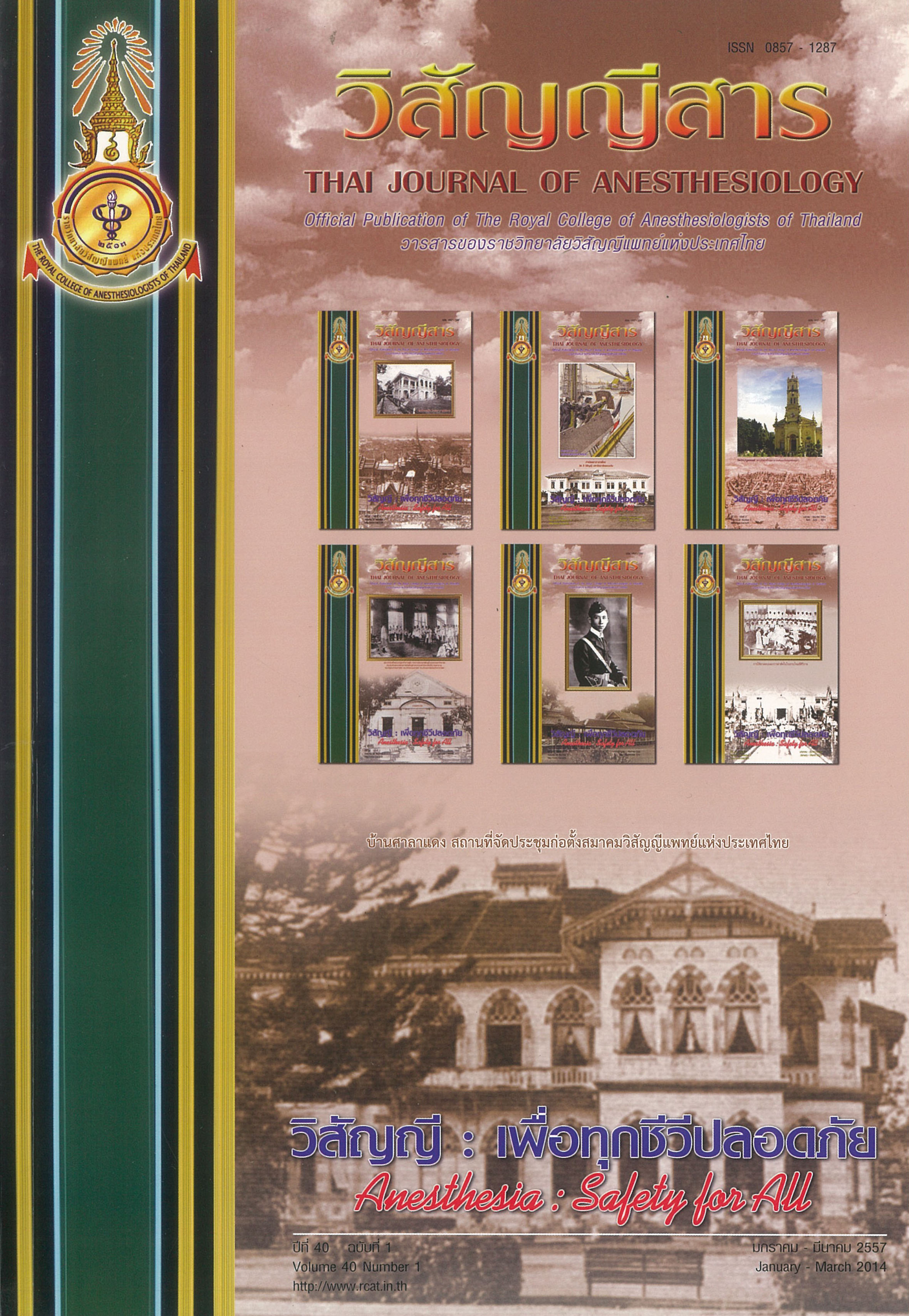The Comparison of Hemodynamic Effect of Propofol and Thiopental During Electroconvulsive Therapy (ECT): A Prospective Randomized Controlled Trial
Main Article Content
Abstract
Background: Electroconvulsive therapy (ECT) is a well - recognized effective treatment for psychiatric illness for more than fifty years. Electrical current during ECT stimulates the autonomic nervous system and provokes unique hemodynamic changes in systemic circulation. The study aims to compare hemodynamic effect of propofol with thiopental during electroconvulsive therapy (ECT) in psychiatric patients at Faculty of Medicine Ramathibodi Hospital.
Method: The participants of this study were 14 ASA I - II patients undergoing 102 ECT sessions. Each patient was randomly received either propofol or thiopental followed by succinylcholine for muscle relaxation. The systolic blood pressure (SBP), diastolic blood pressure (DBP), mean arterial blood pressure (MAP), heart rate (HR), oxygen saturation (SpO2), and Bispectral index (BIS) were recorded before anesthetic induction, after induction, before seizure and immediatel the end of the seizure, and at post anesthetic care unit (PACU).
Result : No significant difference was noted in systolic blood pressure (SBP) (p = 0.076). The diastolic blood pressure (DBP) and mean arterial blood pressure (MAP) in propofol group were significantly decreased (p < 0.001, 0.001, respectively) when compared to thiopental in the first 8 minutes after induction and in PACU (p = 0.020, 0.027, respectively). The heart rate (HR) was significantly decreased in propofol group at first 8 minutes (p = 0.027) but not significantly different at PACU (p = 0.076). The oxygen saturation (SpO2) was not significantly different between the two groups. Propofol significantly decreased EEG and motor seizure duration (p < 0.001).
Conclusion: Propofol anesthesia provided better hemodynamic response than Thiopental during ECT. Hence, propofol might be a useful alternative to thiopental in patients who were at higher risk of cardiac complications secondary to marked hemodynamic changes during ECT.


